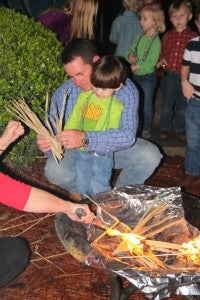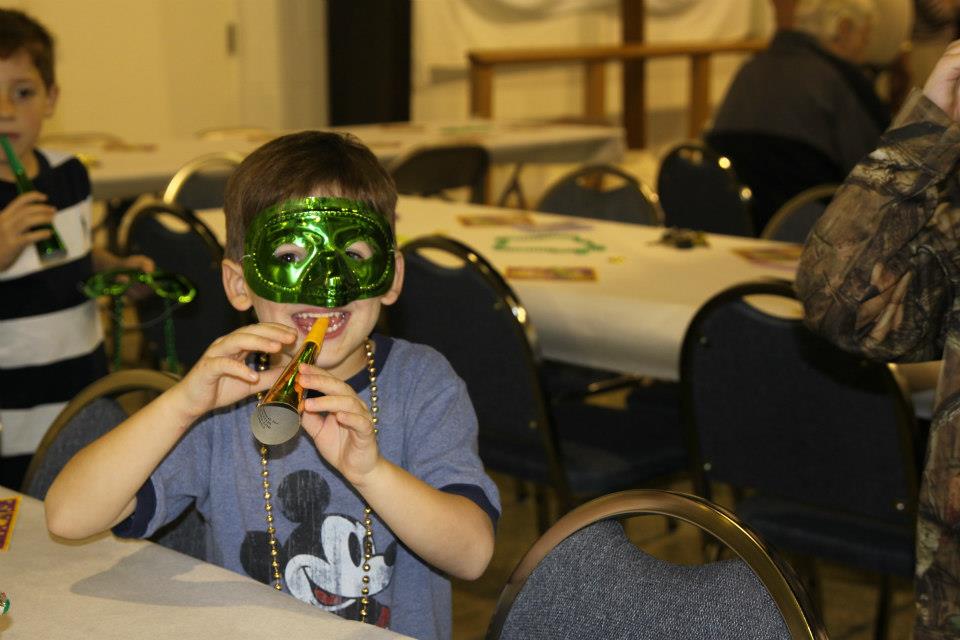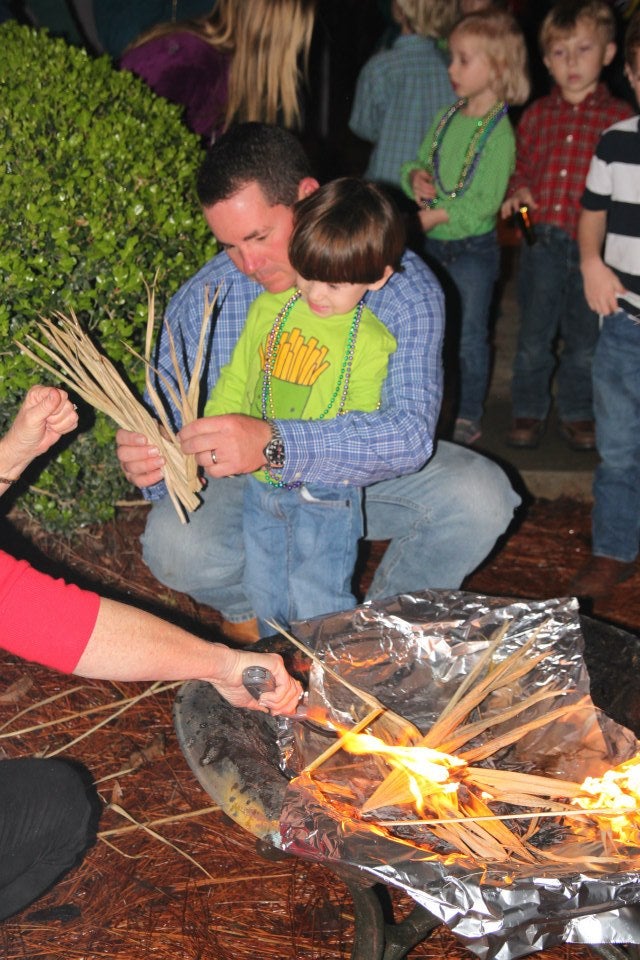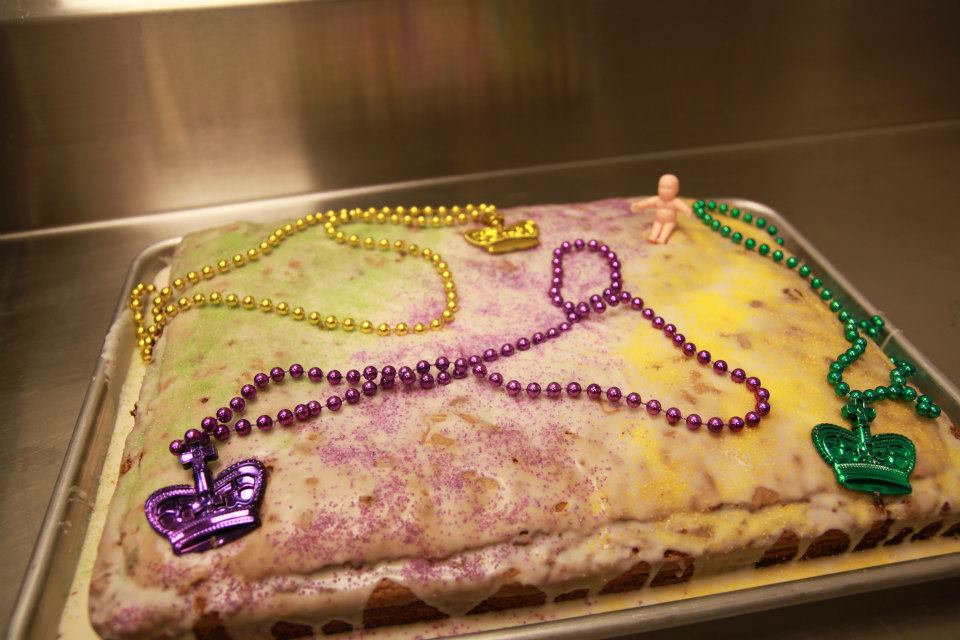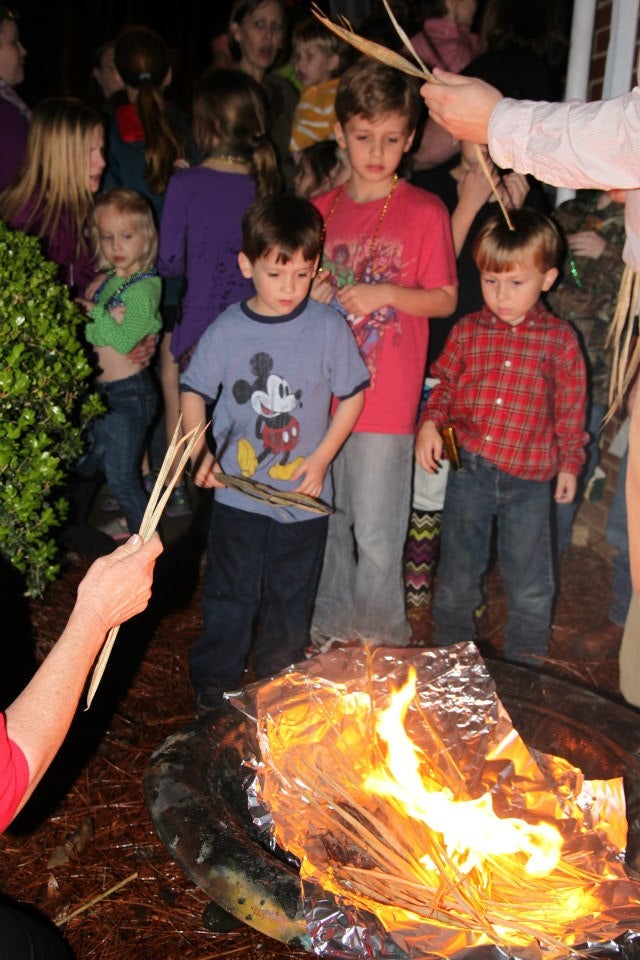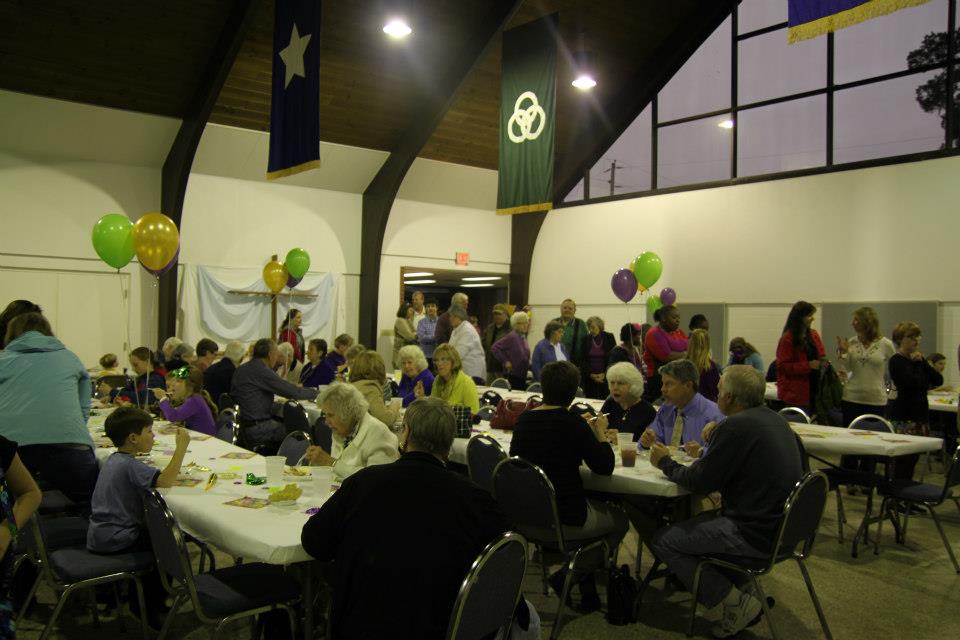FUMC marks start of Lent with pancake supper
Published 5:07 am Friday, February 15, 2013
This past Tuesday, First United Methodist Church in Bainbridge celebrated the start of the Christian season of Lent by holding a Shrove Tuesday family pancake supper.
The supper, which was held in the church’s J.O. Smith Activities Building, featured pancakes, bacon, fruit, sausage, yogurt, King Cake and more. Children wearing traditional Mardi Gras masks and beads held a parade around the fellowship hall and later gathered outside the building to help create the ashes for the following night’s Ash Wednesday service.
The ashes are made from the dried palm branches from the church’s Palm Sunday service held the previous year. On Ash Wednesday, FUMC members had their foreheads marked with the sign of the cross in ash, along with Christians around the world.
Catholics, as well as liturgical churches such as the Methodists, Lutherans and Presbyterians also celebrate the season of Lent. A number of parisioners from other local churches attended FUMC’s pancake supper, which church leaders hope to make an annual event.
In many of these religious faiths, ashes are also used as a symbol of the beginning of this season. The ashes are traditionally used to remind Christians of two things: their sinfulness before God and their physical mortality.
Lent is a time when many Christians prepare themselves for Easter by observing a period of fasting, repentance, sacrifice, and self discipline. For many, this means either giving up something or taking on something—both done with the intent of becoming spiritually closer to God.
The Tuesday before Lent begins was originally called “Shrove Tuesday.” The word shrove is the past tense of shrive, which means “to hear confessions.”
Since Lent was a time of penance (confessing) and fasting, people didn’ t have parties or eat rich foods such as butter, milk, and eggs during Lent. Since people couldn’t afford to waste food, what did they do? On the Tuesday before Lent began, they would use up all these foods. Since so many foods with fats were consumed, the day became known to many as “Fat Tuesday.”
Never heard of Fat Tuesday? The popular “Mardi Gras” festival is named after the French words for Fat Tuesday. Even though some people may not observe the religious meaning of the day, the parties and celebration come to an abrupt end with the beginning of Lent on the next day—Ash Wednesday.
Information used in this article was compiled with the help of Meredyth Earnest of First United Methodist Church and the book “What is Lent?” by Marcia Stoner.



